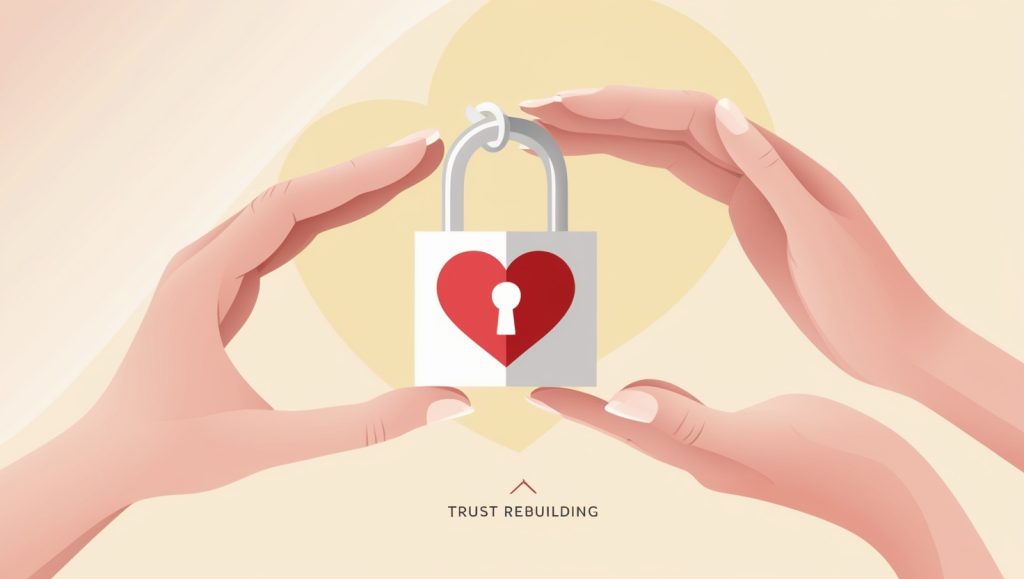Understanding the Need for a Fresh Start
Before diving into solutions, it’s important to understand why you feel the need to start over. Sometimes couples grow apart due to work stress, communication gaps, or even past betrayals. Other times, it’s about wanting to reconnect emotionally after drifting apart.
A fresh start allows both partners to:
- Break unhealthy patterns.
- Heal past wounds.
- Build a relationship that is more intentional, loving, and supportive.
What Does Starting Over Mean?
Starting over doesn’t mean forgetting everything that happened. Instead, it means:
- Acknowledging past mistakes without dwelling on them.
- Choosing forgiveness in a relationship to move forward.
- Committing to growth as individuals and as a couple.
It’s about pressing pause, resetting your emotional connection, and beginning again — together.
Signs You Should Consider Restarting Your Relationship
Not every rough patch requires a restart, but here are some signs it might be time:
- Frequent arguments about the same issues.
- Emotional distance or lack of intimacy.
- Repeated misunderstandings and poor communication.
- Lingering resentment from past mistakes.
- A desire to stay together but on healthier terms.
Step 1: Emotional Reset Method

The first step is an emotional reset. This means creating space to process what went wrong and what you both want moving forward.
Acknowledging Past Hurts
You cannot rebuild trust without addressing the pain. Talk openly about disappointments or behaviors that created distance.
The Importance of Forgiveness in a Relationship
Forgiveness doesn’t mean excusing hurtful actions — it means choosing not to let the past control your future. Couples who forgive are more likely to experience healing and long-term growth.
Step 2: Open Communication

A fresh start is impossible without honest conversations.
Setting Boundaries for Honest Conversations
Decide how and when you’ll talk about sensitive topics. Respect each other’s space and timing.
Listening to Each Other Without Judgment
Instead of preparing your response, truly listen. Many broken relationships are a result of partners feeling unheard. Communicate effectively — this is the foundation of a healthy relationship.
Step 3: Reflect on Shared Goals

Once communication improves, revisit your vision as a couple.
Defining What You Want Moving Forward
Do you both want marriage, a family, or simply a stronger partnership? Be clear about expectations.
Growing Together in a Relationship
Shared goals help you grow together instead of drifting apart. Whether it’s financial planning, lifestyle changes, or travel, working as a team builds long-term stability.
Step 4: Rediscovering Each Other

When relationships become routine, it’s easy to forget the spark that brought you together.
Activities to Reconnect
- Plan weekly date nights.
- Try new hobbies together.
- Take short trips without distractions.
The Importance of Quality Time
Spending time without screens or work stress helps rebuild intimacy and closeness. Even small rituals like morning coffee together can make a big difference.
Step 5: Addressing Past Issues

Restarting doesn’t mean ignoring problems. It means facing them with a willingness to change.
Identifying Patterns That Need Change
Do you argue about the same topic repeatedly? Do you avoid difficult conversations? Recognize patterns that harm your bond.
Committing to Change Together
Take responsibility for your role in conflicts. This isn’t about blaming — it’s about creating solutions as a team. Couples therapy can provide valuable insights if patterns are deeply rooted.
Step 6: Rebuilding Trust

Trust is the foundation of any relationship. Without it, no restart can succeed.
Steps to Re-establish Trust After Infidelity
If your relationship suffered from betrayal, rebuilding takes time and effort. Be consistent, honest, and patient. Transparency about daily activities can help rebuild security.
Building Reliability Through Small Actions
Trust grows when promises are kept. Small actions — showing up on time, keeping commitments, expressing appreciation — slowly repair a broken relationship.
Step 7: Commitment to Continuous Growth

Restarting a relationship isn’t a one-time fix. It’s a continuous journey of growth.
Setting Relationship Goals
Revisit your goals often. Celebrate progress, and make adjustments when needed.
Embracing Change and Evolving Together
People change over time. The key to a fulfilling relationship is embracing growth rather than resisting it. A long-term relationship thrives when both partners remain flexible and supportive.
Conclusion: Moving Forward with Hope and Positivity
So, how do you start over in a relationship? You begin by choosing to hit the reset button — not to erase the past but to learn from it. Through emotional resets, open communication, trust-building, and shared goals, couples can create a healthier and stronger partnership.
Remember, starting anew takes time and effort, but if both partners are committed, the result can be a deeply fulfilling relationship.
💡 Whether you’re healing after infidelity, rediscovering intimacy, or simply wanting a fresh start, the journey is worth it. With patience, forgiveness, and love, you can build the relationship you’ve always hoped for.
Frequently Asked Questions About Starting Over in a Relationship
1. How do you start over in a relationship?
Starting over involves acknowledging past issues, practicing forgiveness, rebuilding trust, and setting new goals together for a fresh start.
2. Can a broken relationship be fixed?
Yes, with open communication, commitment, and effort from both partners, even a broken relationship can be rebuilt into a healthier one.
3. How do you rebuild trust after infidelity?
Rebuilding trust requires transparency, consistent actions over time, and patience. Couples therapy can also provide valuable guidance.
4. Is starting over in a relationship healthy?
Yes, if both partners are committed to growth, starting afresh can strengthen emotional bonds and create a more fulfilling relationship.
5. How long does it take to reset a relationship?
There’s no fixed timeline. It depends on the issues faced, but with effort and consistency, couples often see positive changes within weeks or months.